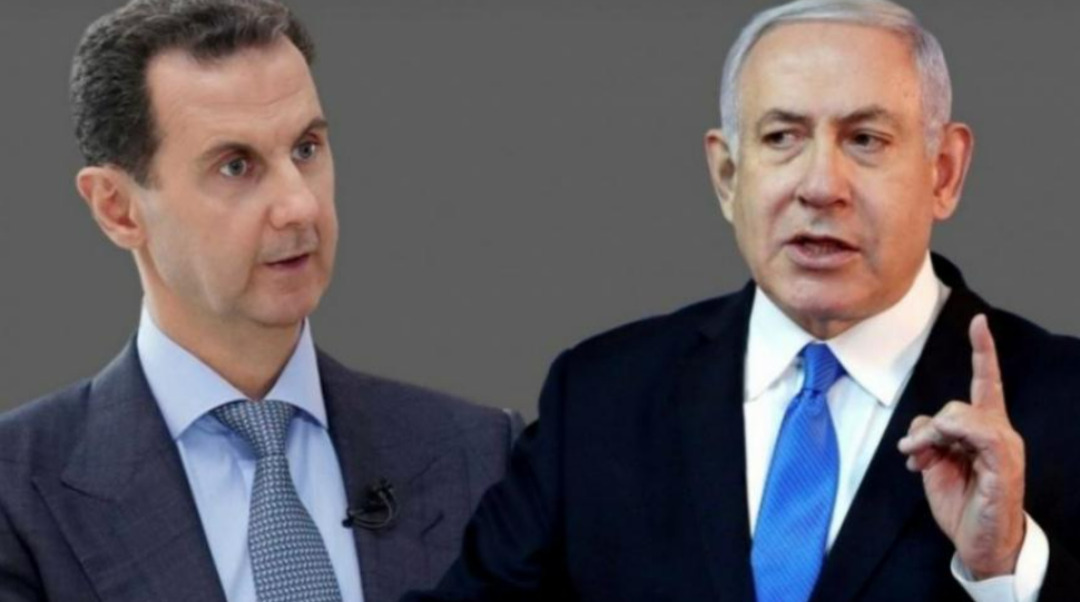-
Damascus' Silence in the Conflict Equation Raises Questions: A New Strategy or a Temporary Tactic?

Damascus' Silence in the Conflict Equation Raises Questions: A New Strategy or a Temporary Tactic?
It seems that the Syrian regime is taking a neutral stance in the current conflict, which raises questions about the future of its relationships with its allies and its position on future developments.
In the recent speech given by Hassan Nasrallah during the funeral of military commander Fouad Shukr, who was killed by Israel, it appeared that he exempted the Syrian regime president from participating in the "Unit of the Fields" that includes forces from the resistance axis. He hasn't mentioned him since the party declared its support for Hamas in Gaza on October 8.
Syrian Neutrality Raises Questions
The Syrian regime's avoidance of involvement in regional conflicts raises several questions. Will it maintain its neutral stance if the war expands, or will it join the conflict? How will it justify its position to its allies in the resistance axis, especially Iran and Hezbollah, who supported it during the war against the Syrian opposition?
Unannounced Position
Despite Hezbollah activating the support front in southern Lebanon, the Syrian regime has remained silent and has not participated in the conflict. Even in media and political solidarity to support its ally, it did not specify its position regarding the rocket that targeted the town of Majdal Shams in the occupied Golan Heights until more than 24 hours after it fell.
Allies’ Understanding
So far, it seems that Hezbollah and Iran are avoiding, at least publicly, engaging in a discussion with the Syrian regime about its refusal to join the support front for Gaza. They prefer to keep the discussion confined to private meetings. According to party sources close to "Al-Sharq Al-Awsat," the resistance axis understands the Syrian regime's reluctance to join the support fronts for Gaza, while keeping the option of participating in the conflict if Hezbollah faces a significant Israeli attack.
Redirecting International Relations
Sources indicate that the Syrian regime currently prefers not to join the conflict while reserving the right to choose the appropriate timing to participate. Damascus is currently seeking to redirect its international relations. Opponents of the resistance axis view Syrian neutrality as part of Damascus' efforts to re-establish its relationship with the international community.
Nasrallah’s Political Speech
The question remains about the political implications of Nasrallah's speech, which aimed to boost the morale of the party's supporters and affirm the response to Shukr's assassination. Sources confirm that the party will not succumb to pressures to deter it from responding and that Iran will not accept the assassination of Haniyeh without a response.
International Mediation Efforts
According to information from "Al-Sharq Al-Awsat," foreign ambassadors in Beirut are seeking to pass messages advising to temporally separate responses to Israel, giving a chance for international mediations to prevent the conflict from expanding. The party remains committed to responding, reserving the right to determine the timing and place.
Levant News
You May Also Like
Popular Posts
Caricature
BENEFIT Sponsors BuildHer...
- April 23, 2025
BENEFIT, the Kingdom’s innovator and leading company in Fintech and electronic financial transactions service, has sponsored the BuildHer CityHack 2025 Hackathon, a two-day event spearheaded by the College of Engineering and Technology at the Royal University for Women (RUW).
Aimed at secondary school students, the event brought together a distinguished group of academic professionals and technology experts to mentor and inspire young participants.
More than 100 high school students from across the Kingdom of Bahrain took part in the hackathon, which featured an intensive programme of training workshops and hands-on sessions. These activities were tailored to enhance participants’ critical thinking, collaborative problem-solving, and team-building capabilities, while also encouraging the development of practical and sustainable solutions to contemporary challenges using modern technological tools.
BENEFIT’s Chief Executive Mr. Abdulwahed AlJanahi, commented: “Our support for this educational hackathon reflects our long-term strategic vision to nurture the talents of emerging national youth and empower the next generation of accomplished female leaders in technology. By fostering creativity and innovation, we aim to contribute meaningfully to Bahrain’s comprehensive development goals and align with the aspirations outlined in the Kingdom’s Vision 2030—an ambition in which BENEFIT plays a central role.”
Professor Riyadh Yousif Hamzah, President of the Royal University for Women, commented: “This initiative reflects our commitment to advancing women in STEM fields. We're cultivating a generation of creative, solution-driven female leaders who will drive national development. Our partnership with BENEFIT exemplifies the powerful synergy between academia and private sector in supporting educational innovation.”
Hanan Abdulla Hasan, Senior Manager, PR & Communication at BENEFIT, said: “We are honoured to collaborate with RUW in supporting this remarkable technology-focused event. It highlights our commitment to social responsibility, and our ongoing efforts to enhance the digital and innovation capabilities of young Bahraini women and foster their ability to harness technological tools in the service of a smarter, more sustainable future.”
For his part, Dr. Humam ElAgha, Acting Dean of the College of Engineering and Technology at the University, said: “BuildHer CityHack 2025 embodies our hands-on approach to education. By tackling real-world problems through creative thinking and sustainable solutions, we're preparing women to thrive in the knowledge economy – a cornerstone of the University's vision.”
opinion
Report
ads
Newsletter
Subscribe to our mailing list to get the new updates!






















